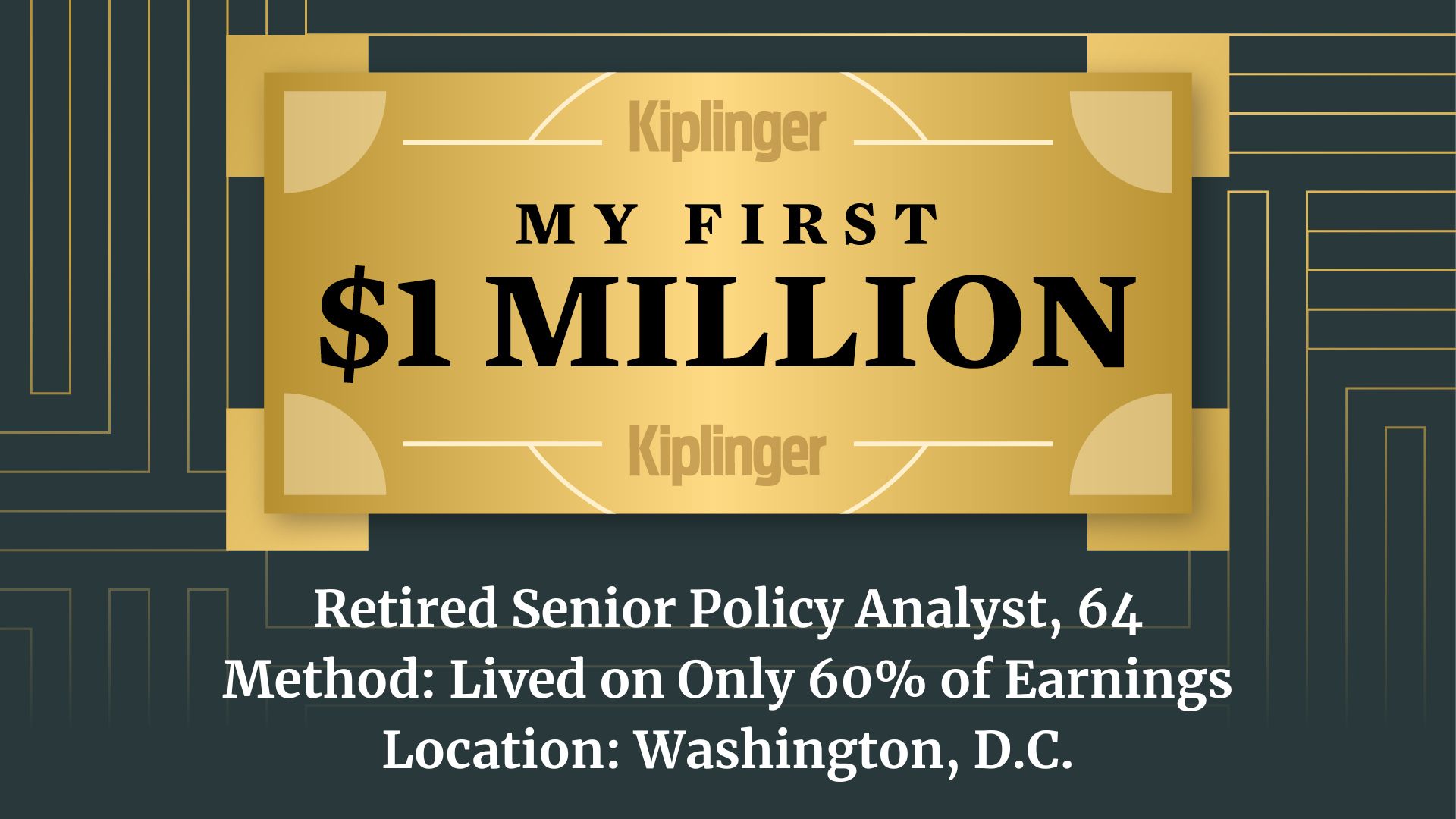Find the Best 30-Year Mortgage Rates Today
Stay up to date with the latest 30-year mortgage rates, expert insights and tips for homebuyers.

Profit and prosper with the best of Kiplinger's advice on investing, taxes, retirement, personal finance and much more. Delivered daily. Enter your email in the box and click Sign Me Up.
You are now subscribed
Your newsletter sign-up was successful
Want to add more newsletters?
Mortgage rates may fluctuate by only fractions of a percent, but those small differences can translate into thousands in long-term savings. Understanding what influences these rates can help you lock in a better deal.
While the Federal Reserve does not directly control mortgage rates, its actions influence them indirectly by affecting the broader economic environment and lender borrowing costs. When the Fed signals potential rate cuts or hikes, mortgage rates often respond accordingly, as lenders adjust to expectations of future inflation and economic growth.
In its first monetary-policy decision of the new year, the Federal Reserve held the federal funds rate steady at 3.50% to 3.75% after three cuts last year. While the pause reflects confidence in the economy, mortgage rates depend more on how financial markets respond to that signal and how lenders price loans based on those expectations.
From just $107.88 $24.99 for Kiplinger Personal Finance
Become a smarter, better informed investor. Subscribe from just $107.88 $24.99, plus get up to 4 Special Issues

Sign up for Kiplinger’s Free Newsletters
Profit and prosper with the best of expert advice on investing, taxes, retirement, personal finance and more - straight to your e-mail.
Profit and prosper with the best of expert advice - straight to your e-mail.
30-year mortgage rates
January’s average mortgage interest rates stand at 6.09% for a 30-year fixed loan and 5.44% for a 15-year fixed, according to Freddie Mac.
If you're looking for the lowest mortgage rate, you should shop around. The financial institution you usually work with may not have the best rate available, so you should look at multiple options before deciding where to go. Mortgage rates have a massive impact on your monthly cash flow and what you end up paying overall.
For example, let’s look at a home with a sale price of $420,000.
Assume you put down 20% ($84,000) and get a $336,000 mortgage. At 6.35%, you’d be paying $2,090.71 on your monthly mortgage payment. But at 6%, you’d be paying $2,014.49 monthly — saving about $914.67 each year.
To put those savings into perspective, here’s how different interest rates can affect your monthly payment, total interest and overall cost over a 30-year loan.
Interest Rate | Monthly Payment | Annual Payment | Total Interest (30 yrs) | Total Cost (Principal + Interest) |
7.00% | $2,235.42 | $26,825.00 | $468,749.90 | $804,749.90 |
6.75% | $2,179.29 | $26,151.48 | $448,544.26 | $784,544.26 |
6.50% | $2,123.75 | $25,484.98 | $428,549.48 | $764,549.48 |
6.25% | $2,068.81 | $24,825.72 | $408,771.53 | $744,771.53 |
6.00% | $2,014.49 | $24,173.88 | $389,216.32 | $725,216.32 |
These calculations are for illustrative purposes only and assume a 20% down payment on a $420,000 home. Monthly and total costs reflect principal and interest payments only and do not include property taxes, homeowners' insurance, HOA fees or other costs of homeownership.
Curious about today's rates? Explore and compare some of today's best mortgage offers with the tool below, powered by Bankrate:
If you already have a mortgage, remember that you can refinance. This was a plan for many people who bought while interest rates were high. The expectation was that when rates went down, they'd be able to refinance and get a better deal.
Refinance rates haven't gone down enough to make this an entirely attractive prospect yet, but the expectation is that in the future they will. Read more on how refinancing a mortgage works and what it costs.
Four ways to get a lower mortgage rate
Market conditions influence mortgage rates, but you can take several proactive steps to improve your chances of securing a lower interest rate. Here are four key strategies to help you save on your mortgage.
Raise your credit score
One of the best and most effective ways to save on your mortgage is to raise your credit score, the biggest factor in determining your mortgage rate. Upping your FICO credit score, which ranges from 300 to 850, by just 20 points can save you hundreds of dollars by lowering your mortgage.
So, while you’ll likely need at least a 620 FICO score in order to qualify for a mortgage at any rate, you'll need a higher score to get approved for the best rates. Raising your credit score can be done in a number of ways, including making card payments on time and keeping credit card balances low.
Increase your down payment
In order to get the best rates on a conventional mortgage loan from Fannie Mae or Freddie Mac, you'll need to make at least a 20% down payment. In fact, the bigger your down payment is, the better your rate will likely be. You'll have to repay less principal and less interest over the life of the loan.
Get multiple quotes
Different lenders may offer different rates. Because of this, it's important to get multiple quotes before you choose your mortgage lender to ensure you're getting the lowest interest rates available to you.
Consider an adjustable-rate mortgage (ARM)
If you know you're going to sell your home in the near future, opting for an ARM could be a good decision. For example, if you're going to sell your home in four years, choosing a 5-year ARM could save you a lot in interest. A mortgage calculator can help you estimate how an adjustable-rate mortgage (ARM) payment may change over time and what that means for your monthly budget.
You'll be able to take advantage of the lower interest rates associated with this kind of mortgage, and you won't have to worry about your rate changing before you sell.
Looking for the best 30-year mortgage rate can save you thousands over the life of your loan. By boosting your credit score, making a larger down payment and shopping around for quotes, you can put yourself in a better position to get a lower rate.
Related Content
Profit and prosper with the best of Kiplinger's advice on investing, taxes, retirement, personal finance and much more. Delivered daily. Enter your email in the box and click Sign Me Up.

Carla Ayers joined Kiplinger in 2024 as the eCommerce and Personal Finance Editor. Her professional background spans both commercial and residential real estate, enriching her writing with firsthand industry insights.
Carla has worked as a personal finance and real estate writer for Rocket Mortgage, Inman and other industry publications.
She is passionate about making complex real estate and financial topics accessible to all readers. Dedicated to transparency and clarity, her ultimate goal is to help her audience make informed and confident decisions in their financial pursuits.
-
 4 High-End Experiences Worth the Splurge After 50
4 High-End Experiences Worth the Splurge After 50These curated date ideas provide the perfect backdrop for couples ready to enjoy the very best that the world has to offer.
-
 Health Care Stocks Have Sagged. Can You Bet on a Recovery?
Health Care Stocks Have Sagged. Can You Bet on a Recovery?The flagging health care sector has perked up a bit lately. Is it time to invest?
-
 Costco's Auto Program: Can Membership Pricing Really Save You Money on a Car?
Costco's Auto Program: Can Membership Pricing Really Save You Money on a Car?Costco's Auto Program can simplify the car-buying process with prearranged pricing and member perks. Here's what to know before you use it.
-
 What Is an Assumable Mortgage and Could It Save You Thousands?
What Is an Assumable Mortgage and Could It Save You Thousands?With mortgage rates still elevated, taking over a seller’s existing home loan could lower monthly payments — if the numbers work.
-
 An Executive's 'Idiotic' Idea: Skip Safety Class and Commit a Federal Crime
An Executive's 'Idiotic' Idea: Skip Safety Class and Commit a Federal CrimeSeveral medical professionals reached out to say that one of their bosses suggested committing a crime to fulfill OSHA requirements. What's an employee to do?
-
 How to Find Free Money for Graduate School as Federal Loans Tighten in 2026
How to Find Free Money for Graduate School as Federal Loans Tighten in 2026Starting July 1, federal borrowing will be capped for new graduate students, making scholarships and other forms of "free money" vital. Here's what to know.
-
 Want to Buy a Home With a Friend? Here's How to Prevent Legal Headaches
Want to Buy a Home With a Friend? Here's How to Prevent Legal HeadachesWith rising home prices leading more people to co-buy homes with friends, it's essential to have a co-tenancy agreement that clearly defines the deal.
-
 My First $1 Million: Retired Senior Policy Analyst, 64, Washington, D.C.
My First $1 Million: Retired Senior Policy Analyst, 64, Washington, D.C.Ever wonder how someone who's made a million dollars or more did it? Kiplinger's My First $1 Million series uncovers the answers.
-
 Finances Not Going Anywhere? These 3 Steps Can Help You Find Your North Star
Finances Not Going Anywhere? These 3 Steps Can Help You Find Your North StarIf you're overwhelmed by financial planning, a long list of to-dos won't help. Find clarity by focusing on steps built around what's most important to you.
-
 Are You Making These 3 Savings Mistakes?
Are You Making These 3 Savings Mistakes?Avoiding these common mistakes can help you build a foundation of wealth while not leaving thousands of dollars on the table.
-
 I'm a Financial Planner: These Small Money Habits Stick (and Now Is the Perfect Time to Adopt Them)
I'm a Financial Planner: These Small Money Habits Stick (and Now Is the Perfect Time to Adopt Them)February gets a bad rap for being the month when resolutions fade — in fact, it's the perfect time to reset and focus on small changes that actually pay off.